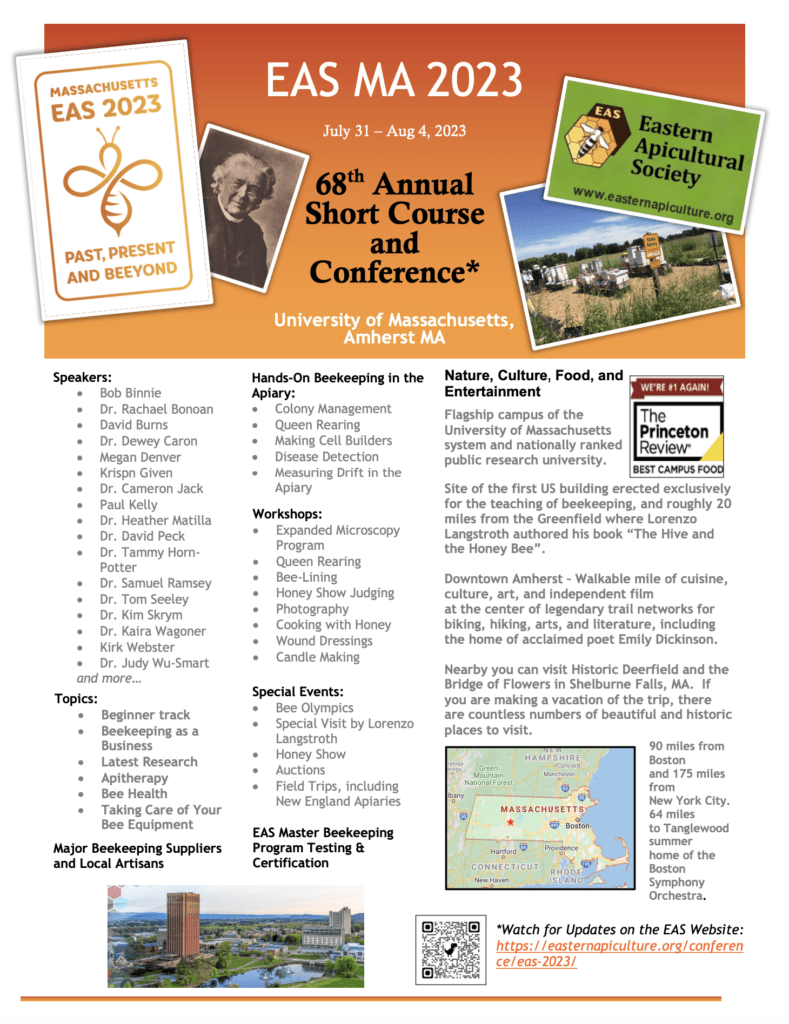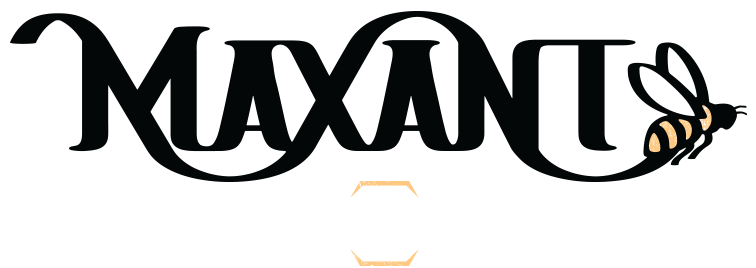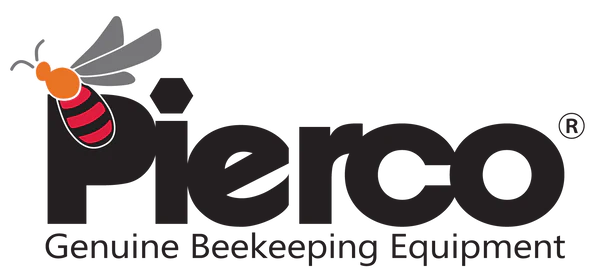Join us for EAS 2023 in Amherst, MA!
July 31 – August 4, 2023
Past, Present and Beeyond
The theme of the EAS 2023 conference is “Past, Present, and Beeyond”. Massachusetts is rich in its beekeeping history. Reverend Lorenzo Langstroth lived a short distance (30-minute drive) from the UMASS Amherst campus in Greenfield MA. Langstroth was pastor of the Second Congregational Church from 1840 to -1858 and is known worldwide as the “Father of Modern Beekeeping”. Come walk the same Greenfield city center streets where Langstroth preached, wrote, and invented the moveable frame hive. Reverend Langstroth is scheduled to be joining us at the conference.
In addition to the outstanding classroom sessions and the conference keynote speakers, there will be four exciting workshops including bee photography, queen-rearing program, baking with honey, and honeybee microscopy.
The rooming accommodations are numerous. The Campus Center Hotel is located on the upper floors of the EAS conference headquarters which makes it incredibly accessible, book early to get the special EAS conference rate. Conference rates for nearby hotels and motels are being negotiated. Selected UMASS dormitories are set up in an apartment style-suite containing four separate single dorm rooms that share a kitchen setup, a living room, and two bathrooms. There are several campgrounds in the area as well.
Beekeepers like to eat and you won’t be disappointed. The UMASS Dining Services has been rated #1 in the Princeton Review for the last nine years. The many on-campus Food Courts are available to all conference attendees.
Please get your honey ready for the prestigious EAS Honey Show competition. The Honey Show committee will be offering a Tuesday afternoon workshop “How to Judge Honey”. Learn what the judges are looking for and give it a try in this hands-on workshop.
Western Massachusetts has quite a bit to offer. Amherst is home to one of the most scenic areas in the state – the Connecticut River Valley. Bring your hiking boots and tackle a portion of the North Woods New England Trail. Visit the various museums, tourist attractions, and artisan shops in the surrounding communities.
If flying, the closest airport is Bradley International Airport in the neighboring state of Connecticut, it’s only forty-five minutes away. Airport to conference transportation is available.
Mary Duane
President EAS
Looking to book your accommodations?
UMass Amherst Hotel Reservation Link
Hampton Inn, Hadley, Ma – EAS, July 30 – August 5, 2023, Direct Reservation Booking Link
July 2023 Update: We have been advised that our block of rooms in the UMass Campas Hotel is sold out. Dorms are available until July 8, 2023, and other hotels in the region may still have accommodation.
Check out this year’s schedule!
Please note that the schedule is subject to change.
Sponsors
Gold Sponsors
Silver Sponsors
Exhibitors
Conference Exhibitors
Apimaye Beehives
Apimon Beekeeping
Bee Lite Candles
BROODMINDER
Dalan Animal Health
Doctor Bill’s Bees
HiveAlive
HoneyBound Meadery
Life Line BeesNew England Apiaries
Reid’s Apiary/Bee-tique
Rose Micro Solutions
Slovenian Beekeeping
Solution Bee
Strong Microbials
The Hive Butler / The Easy See
Veto-pharma
Wicwas Press
Conference Pop-Up Exhibitors
Bee Hauling USA (Weds. & Thur.)
Photo Hive (Weds)
Vermont Quilt Bee (Weds)
Conference Nonprofit Exhibitors
American Beekeeping Federation
Apiary Inspectors of America
Bee Informed Partnership
Field Watch
Vendor Specials
Several of our vendors are offering exclusive offers for EAS 2023 Conference attendees. To learn more please visit our EAS 2023 Vendor Special page.
EAS 2023 Conference Includes:
Short Course: Introduction to Honey Show Judging
Tuesday, August 1, 2023 (DRAFT- Subject to change)
The introduction to Honey Show Judging is presented as a series of workshops led by experienced judges and honey show superintendents. Attendees can pick and choose which sessions they wish to attend, however for maximum benefit, we encourage anyone serious about pursuing judging to attend the entire day. All EAS Honey Show stewards are asked to attend the first session or contact the workshop coordinator for alternate arrangements. Please bring your own samples of honey, comb, wax blocks, and candles for the hands-on sessions.
Information Coming Soon!
In addition to the Vendor Hall, the Honey Show will also occur in the Campus Center. We are planning a tremendous Honey Show which will test the entries of beekeepers in Extracted Honey, Comb Honey, Creamed Honey, Frame of Honey, Beeswax, Mead, Arts and Crafts, Gadgets Show, Honey Cookery, and Photography.
Honey Shot Tips and Tricks, judging criteria may be found on the website. Check out all the classes in which entries may be made and be involved!
For further information visit our Honey Show page.
2023 EAS Honey Exchange!
Bring your honey to the conference and place it in the Honey Exchange to trade with
other conference beekeepers. On the last day of EAS pick up an “exchange jar” (one
per each jar you bring) from the wide range of flavors and locations from across EAS.
Be sure your jars have your special label. Let’s see how many states and provinces will
be represented. Our own Honey Bar!
EAS 2023 will continue its tradition of Master Beekeeper certification to recognize qualified beekeepers who will provide education and assistance to beginning beekeepers and serve in other capacities in the community as experts in beekeeping. Those seeking certification apply and are scheduled for the oral, field, lab and written components of the certification by the Master Beekeepers. Certification dates will be announced soon.
For further information visit our Master Beekeepers Certification Program or explore our FAQs.
The recipients of three awards are recognized at this year’s conference. The winner of the James I. Hambleton Memorial Award, the Morse Outstanding Teaching/Extension Service/Regulatory Award, and a surprise announcement of the winner of the Charles and Evelyn Divelbiss Education Award will be made at the banquet! The EAS Student Apiculture Award was established to recognize students studying apiculture at the undergraduate or graduate level in a recognized college or university in the United States or Canada.
For further information visit the Awards and Scholarships page.
The EAS Foundation for Honey Bee Research is a competitive grant program developed from donations received from beekeepers and others interested in funding research on topical problems in honey bees.
For further information visit the Honey Bee Research Grants page.
Bee wranglers with provide hands-on experiences in the Apiary. These will continue in the main conference as well. Topics range and will be announced soon.
Information Coming Soon!
Our vendors will have a large venue located right in the Campus Center – the same building as the short courses and lectures. This is a great opportunity to see and meet with representatives offering their latest equipment and products, and purchase products for the harvest season and winter preparation. In the vendor hall you will also find an area for authors to sign their books, and a location for the exchange of honey by our members who attend the conference.
Information Coming Soon!
Visit our virtual auction and be sure to check out the in-person silent and live auctions at the conference!
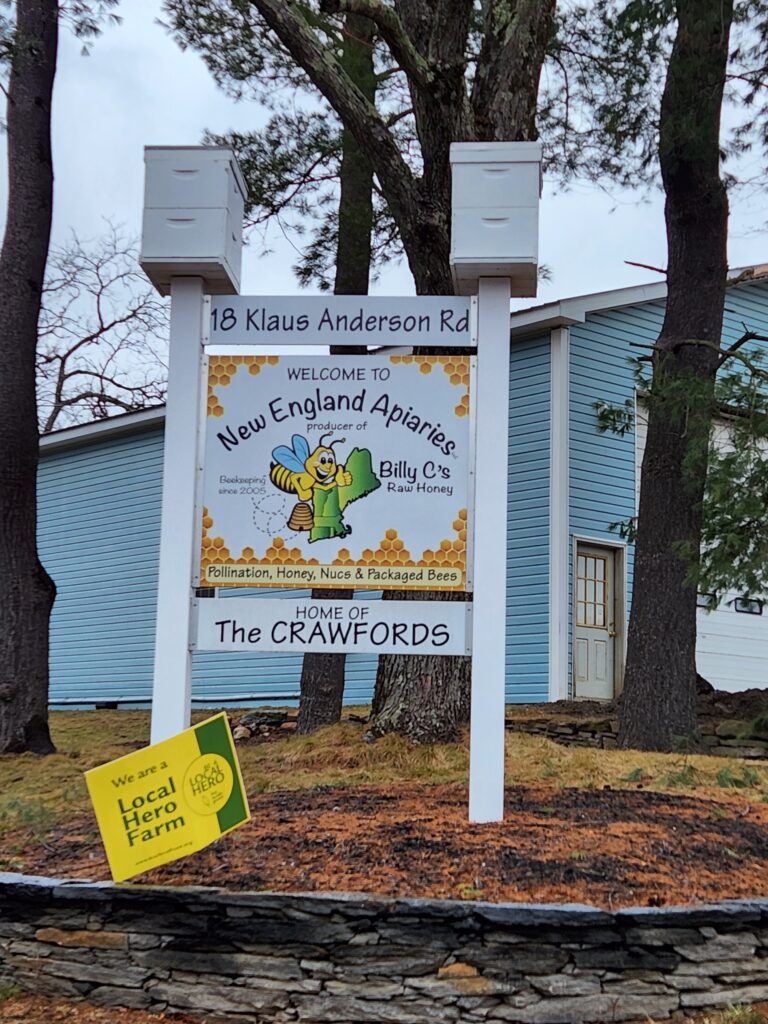
New England Apiaries LLC
On this tour of New England Apiaries LLC in Southwick, MA., you will learn about how a single hive and a local bee club’s bee school changed life’s trajectory for one man and led to a career in beekeeping. There will be a presentation on what New England Apiaries LLC does with their 2500+ colonies throughout the year, an opportunity to look at commercial extracting equipment, and a live demonstration on cutting up cut comb honey.
EAS Photography Workshop
Join photographer, apiary inspector and beekeeper Paul Tessier for a hands-on photography workshop where you will learn to make professional quality, awe inspiring close-up images of honey bees.
Whether you are new to photography and looking for basic instruction, a seasoned pro looking to polish your craft, or someone who is just interested in how these pictures are created, this workshop will have something for you! Bring your camera, lens, and vail. We plan to photograph honey bees on flowers, water sources as well as in and around the hive.
- Hands on instruction photographing live honey bees.
- Learn to use macro lenses for detailed close-up images.
- Learn to use flashes and modifiers for dramatic lighting.
- Learn to critique, edit, and process photos.
- Share newly taken photos at conference gatherings.
Queen-rearing Workshop
The queen-rearing class for EAS 2023 will describe, demonstrate, and allow participants to practice all the steps involved in raising queens. It will focus on using the Doolittle method of grafting, although other methods will be discussed. The class will be broken up into 5 sessions over two consecutive days.
It will start with a classroom discussion of cell builders and how to ensure success, followed by a hands-on session in the apiary making up a cell builder for later use. The class will then continue with a combination of classroom and hands on sessions on grafting. There will be frames of larvae to practice grafting, and some of these grafts will be placed into the previously set up cell builders. Class will also cover topics of setting up mating nucs, placing cells, understanding the queen development timeline, and troubleshooting common problems.
This is intended to be an intermediate to advanced class. The number of participants will be limited to ensure everyone has an opportunity to get as much practice as possible to become comfortable with each step of the process.
Microscopy Workshop
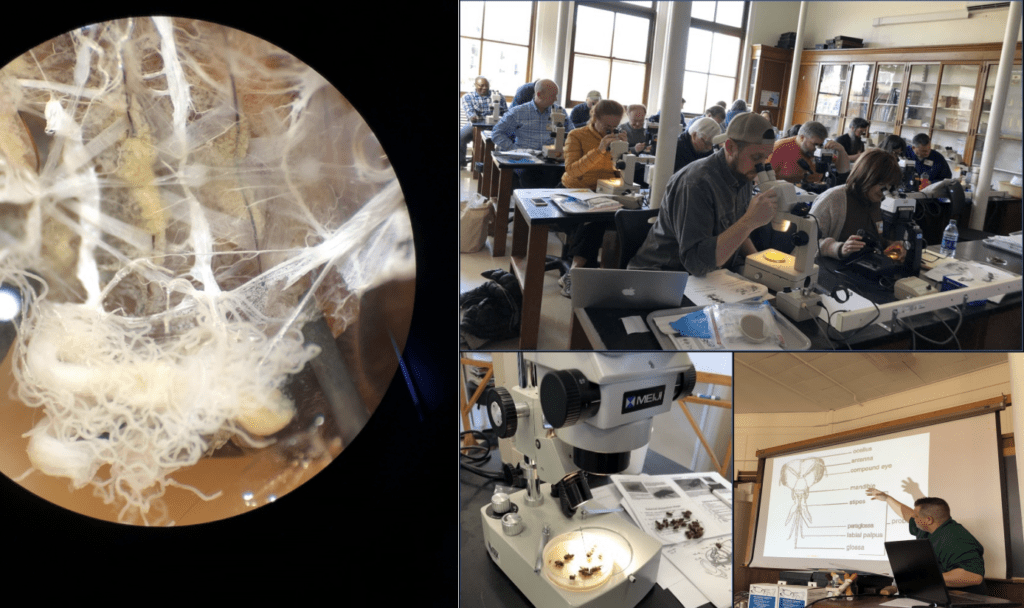
The microscopy workshop will provide exposure to microscopes, bee anatomy, sample preparation, dissection protocols, and disease diagnostics. The course will focus on external/internal anatomy and the other on health issues. The external anatomy component will cover all the basic body parts of the honey bee worker and activity to dis-assemble/re-assemble bee. The internal anatomy component will cover all internal structures of the honey bee worker and an activity to remove tissues to create slides for further diagnostics in the health issues classroom. Time permitting, students will also be able to view and dissect the anatomy of drone and queen honey bees. The health issues component will focus on visual symptoms, field diagnosis, sampling and lab analysis for Nosema, AFB, EFB, Varroa and Tracheal mites.
Other
Looking for information on electric vehicles on campus? Learn about the charging station available by visting the UMass Electric Vehicle page.
You will need to pay directly through a Chargeport account. To find locations of electric vehicle spots, visit https://maps.umass.edu/parking/#?latitude=42.39030&longitude=-72.52930&zoom=16.0&rotation=0&basemap=topo and search “Electric Vehicle Charging Stations” in the top left toolbar. Charging stations are designated with a lime green “EV” symbol.
Also, you should use ones around campus, not in the garage, when possible – if you park in the garage you’ll also need to pay to get in and out of the garage.
There is so much to do in Western Massachusetts! Learn more by reviewing the Visitors Guide!
Learn more at our Children’s Program page.
EAS 2023 Conference Includes:
TBA
TBA
In addition to the Vendor Hall, the Honey Show will also occur in the Campus Center. We are planning a tremendous Honey Show which will test the entries of beekeepers in Extracted Honey, Comb Honey, Creamed Honey, Frame of Honey, Beeswax, Mead, Arts and Crafts, Gadgets Show, Honey Cookery, and Photography.
Honey Shot Tips and Tricks, judging criteria may be found on the website. Check out all the classes in which entries may be made and be involved!
For further information visit our Honey Show page Honey Show.
EAS 2023 will continue its tradition of Master Beekeeper certification to recognize qualified beekeepers who will provide education and assistance to beginning beekeepers and serve in other capacities in the community as experts in beekeeping. Those seeking certification apply and are scheduled for the oral, field, lab and written components of the certification by the Master Beekeepers. Certification dates will be announced soon.
For further information visit our Master Beekeepers Certification Program Master Beekeeper Certification page.
The recipients of three awards are recognized at this year’s conference. The winner of the James I. Hambleton Memorial Award, the Morse Outstanding Teaching/Extension Service/Regulatory Award, and a surprise announcement of the winner of the Charles and Evelyn Divelbiss Education Award will be made at the banquet! The EAS Student Apiculture Award was established to recognize students studying apiculture at the undergraduate or graduate level in a recognized college or university in the United States or Canada.
For further information visit the Awards and Scholarships page.
The EAS Foundation for Honey Bee Research is a competitive grant program developed from donations received from beekeepers and others interested in funding research on topical problems in honey bees.
For further information visit the Honey Bee Research Grants page.
Bee wranglers with provide hands-on experiences in the Apiary. These will continue in the main conference as well. Topics range and will be announced soon.
TBA
Our vendors will have a large venue located right in the Campus Center – the same building as the short courses and lectures. This is a great opportunity to see and meet with representatives offering their latest equipment and products, and purchase products for the harvest season and winter preparation. In the vendor hall you will also find an area for authors to sign their books, and a location for the exchange of honey by our members who attend the conference.
TBA
TBA
For those interested in a little “wake-up” activity before the sessions start the conference regularly features either yoga or zumba sessions, free and open to all. These sessions provide for a fun way to get the kinks out and the energy flowing before breakfast and the conference schedule.
In addition to the outstanding classroom sessions and the conference keynote speakers, there will be four exciting workshops including bee photography, queen-rearing program, baking with honey, and honeybee microscopy.
Microscopy

Ever wanted to look at a bee up close? Wondered how it’s respiratory system differs from ours? Or what it’s ocelli look like?
During this workshop, we will cover both external and internal anatomy. Along the way, you will learn how to use a stereo microscope, how to dissect a bee, how to identify external and internal body parts, and diagnosis of health issues. No prior microscope experience is necessary.
The workshop will be offered during two-time blocks allowing for 96 students total to attend.
A total of 24 students will be assigned to one of the two designated teaching lab classrooms and then switch between rooms after a two-hour time block in each room. One classroom will focus on external/internal anatomy and the other on health issues.
The external anatomy component will cover all the basic body parts of the honey bee worker and the activity to dis-assemble/re-assemble bee. The internal anatomy component will cover all internal structures of the honey bee worker and activity to remove tissues to create slides for further diagnostics in the health issues classroom. Time permitting, students will also be able to view and dissect the anatomy of drone and queen honey bees. The health issues component will focus on visual symptoms, field diagnosis, sampling, and lab analysis for Nosema, AFB, EFB, and Varroa mites.
The classrooms used in this workshop are equipped with a projector, screen, teaching microscopes, and individual student workstations that have both stereo and compound microscopes. Students will have access to compound and stereo microscopes, dissection kits, expired honey bees (workers, drones, queens), reference material (i.e. Nosema, AFB, EFB, Varroa mites), and instructional support (i.e. instructors and handouts). The workshops will be led by an instructor and support staff. It is expected that students will work on their own, but all are encouraged to also support each other and facilitate group learning during the workshop.
Dissection kits will be provided as part of registration and students will be able to take them home after the workshop. Honey bees will be provided for dissections, but students are encouraged to also bring their bees for evaluation. Students who want to analyze their bees should collect them fresh from the colony, store in the freezer, and then transport chilled to the workshop.
Space will be limited to 96 students, and there is a fee to attend this workshop.
Queen rearing class
The queen rearing class for EAS 2023 will describe, demonstrate, and allow participants to practice all the steps involved in raising queens. It will focus on using the Doolittle method of grafting, although other methods will be discussed. The class will be broken up into 5 sessions over two consecutive days. It will start with a classroom discussion of cell builders and how to ensure success, followed by a hands- on session in the apiary making up a cell builder for later use. The class will then continue with a combination of classroom and hands on sessions on grafting. There will be frames of larvae to practice grafting, and some of these grafts will be placed into the previously set up cell builders. Class will also cover topics of setting up mating nucs, placing cells, understanding the queen development timeline, and troubleshooting common problems.
This is intended to be an intermediate to advanced class. The number of participants will be limited to ensure everyone has an opportunity to get as much practice as possible to become comfortable with each step of the process.
EAS Photography
Join photographer, apiary inspector and beekeeper Paul Tessier for a hands-on photography workshop where you will learn to make professional quality, awe inspiring close-up images of honey bees. Whether you are new to photography and looking for basic instruction, a seasoned pro looking to polish your craft, or someone who is just interested in how these pictures are created, this workshop will have something for you! Bring your camera, lens, and vail. We plan to photograph honey bees on flowers, water sources as well as in and around the hive.
• Hands on instruction photographing live honey bees.
• Learn to use macro lenses for detailed close-up images.
• Learn to use flashes and modifiers for dramatic lighting.
• Learn to critique, edit, and process photos.
• Share newly taken photos at conference gatherings.
Baking with Honey
UMass Dining Director of Bakery Operations and Executive Pastry Chef Pamela Adams will share her tips on delicious baking treats with honey. The University of Massachusetts Amherst and Chef Adams have won numerous awards for their culinary endeavors.

New England Apiaries LLC
On this tour of New England Apiaries LLC in Southwick, MA., you will learn about how a single hive and a local bee club’s bee school changed life’s trajectory for one man and led to a career in beekeeping. There will be a presentation on what New England Apiaries LLC does with their 2500+ colonies throughout the year, an opportunity to look at commercial extracting equipment, and a live demonstration on cutting up cut comb honey.
EAS Photography Workshop
Join photographer, apiary inspector and beekeeper Paul Tessier for a hands-on photography workshop where you will learn to make professional quality, awe inspiring close-up images of honey bees.
Whether you are new to photography and looking for basic instruction, a seasoned pro looking to polish your craft, or someone who is just interested in how these pictures are created, this workshop will have something for you! Bring your camera, lens, and vail. We plan to photograph honey bees on flowers, water sources as well as in and around the hive.
- Hands on instruction photographing live honey bees.
- Learn to use macro lenses for detailed close-up images.
- Learn to use flashes and modifiers for dramatic lighting.
- Learn to critique, edit, and process photos.
- Share newly taken photos at conference gatherings.
Queen-rearing Workshop
The queen-rearing class for EAS 2023 will describe, demonstrate, and allow participants to practice all the steps involved in raising queens. It will focus on using the Doolittle method of grafting, although other methods will be discussed. The class will be broken up into 5 sessions over two consecutive days.
It will start with a classroom discussion of cell builders and how to ensure success, followed by a hands-on session in the apiary making up a cell builder for later use. The class will then continue with a combination of classroom and hands on sessions on grafting. There will be frames of larvae to practice grafting, and some of these grafts will be placed into the previously set up cell builders. Class will also cover topics of setting up mating nucs, placing cells, understanding the queen development timeline, and troubleshooting common problems.
This is intended to be an intermediate to advanced class. The number of participants will be limited to ensure everyone has an opportunity to get as much practice as possible to become comfortable with each step of the process.
Microscopy Workshop
The microscopy workshop will provide exposure to microscopes, bee anatomy, sample preparation, dissection protocols, and disease diagnostics. The course will focus on external/internal anatomy and the other on health issues. The external anatomy component will cover all the basic body parts of the honey bee worker and activity to dis-assemble/re-assemble bee. The internal anatomy component will cover all internal structures of the honey bee worker and an activity to remove tissues to create slides for further diagnostics in the health issues classroom. Time permitting, students will also be able to view and dissect the anatomy of drone and queen honey bees. The health issues component will focus on visual symptoms, field diagnosis, sampling and lab analysis for Nosema, AFB, EFB, Varroa and Tracheal mites.
Short Course: Introduction to Honey Show Judging
Tuesday, August 1, 2023 (DRAFT- Subject to change)
The introduction to Honey Show Judging is presented as a series of workshops led by experienced judges
and honey show superintendents. Attendees can pick and choose which sessions they wish to attend,
however for maximum benefit, we encourage anyone serious about pursuing judging to attend the entire
day. All EAS Honey Show stewards are asked to attend the first session or contact the workshop
coordinator for alternate arrangements. Please bring your own samples of honey, comb, wax blocks, and
candles for the hands-on sessions.
Other
